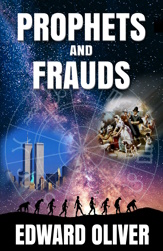Many Old French words can be found by simply looking them up in any modern French dictionary. This glossary lists those words that are no longer a part of the modern French language. New words will be added just as soon as they become available.
OLD FRENCH DICTIONARY
NOTE: A lower case "f" might actually be an "s".
Facheaux - (O.F. a.) troublesome, grievous
Facet
- (L. v.) to do easily
note: from Latin "facesso" - to do eagerly
Facher - (O.F. a.) angry
Faict - (O.F. v.) make, act, create, do, fake
Faillir - (O.F. p.) failing, falling
Faim - (O.F. n.f.) hunger, desire, passion, suffering
Fainct - (O.F. n.) false, feigned
Fair/Faire - (O.F. v.) to do, make create, act, etc..
Famine - (O.F. n.) famine
Farouches - (O.F. a.) ferocious
Faschee - (O.F. n.) fascist, fascism
Faudra - (O.F. v. fut.) will need, will be in need, needy, faulted
Faulte - (O.F. n.) fault, sin, error
Favorable - (O.F. a.) favorable
Favory - (O.F. a.) favored
Felice - (O.F. a.) merry, happy, joyful
Femme - (O.F. n.) woman, female
Fenera - (F. v. fut.) will diminish
Fer - (F. n.) steel, iron, ferrous metal, steel blade, sword, swordsman, iron globe (bomb), etc..
Fera - (O.F. v. fut.) will be, will cause, will make
Feront - (O.F. v. fut.) they will be, they will cause, they will make
Fertile - (O.F. a.) fertile, loyal, friendly
Festes - (O.F. n. plur.) festivals, celebrations
Feu/Feux - (O.F. n.) fire, on fire, flame, burning, pain
Feut - (F. p.) filled, thick, stuffed
Fez - (F. n.) Turkey, Ottomans, Turkish coast of Africa
Fiel - (O.F. n.) jealousy, bitterness. hatred
Fier - (O.F. a.) fierce
Figuieres - (O.F. n. plur.) fig trees, orchard
Fille - (O.F. n.) daughter
Filz - (O.F. n.) son
Fin/Finie - (O.F. n.) the end, finish
Flambe - (O.F. n.) flame, aura
Flateurs - (O.F. n. plur.) flatterers
Fleaux - (O.F. n.) disaster, scourge, catastrophe
Fleur/Fleurir - (O.F. n.) flower, bloom, blossom, luster, fleur-de-lis, papacy
Fleur-de-lis - (O.F. n.) a crest of 3 lilies, Catholic Church, papacy
Fleuve
- (O.F. n.) river, route, course
source: Cassell's French Dictionary ISBN# 0-02-522620-7
note: in 15th century Europe rivers were often the main "route" or "course" of travel between cities.
Foi/Foy - (O.F. n.) faith, holy action
Fois - (O.F. n.) a time, times
Fond - (F. n.) bottom, plow, ground floor
Fondation - (O.F. a.) beginning, ending, wasting away
Force - (O.F. n.) force, forces, troops, by force
Forest - (O.F. n.) forest
Forme - (O.F. n.) form
Fort/Forte - (O.F. n.) strong, strength
Fortune - (O.F. n.) fortunes
Fouldres - (O.F. n., plur.) flames, lightning, a thunderbolt, a fearsome person
Foy - (O.F. n.) faith, act, holy act
Franche - (F. v.) break free
Fraper - (O.F. v.) strike
Fratricider - (O.F. v.) brother murderer, murderer friar
Frenetique - (O.F. a.) frenetic
Frere - (O.F. n.) brother
Frise - (O.F. n.f.) Holland, Belgium, Flanders
Froit - (O.F. n.) cold
Froment - (O.F. n.) wheat
Front - (O.F. n.) face, forehead
Fruit/Fruict/Fruitz - (O. F. n.) fruit, progeny, children
Frustrez - (O.F. v.) frustrate
Fuir - (O.F. v.) flee, escape
Fulgures - (O.F. n. plur.) explosions
Furent - (O. F. p.) were
Fureur - (O.F. n.) fury
Fut - (O.F. n.) future
OLD FRENCH DICTIONARY
The Old French language included many words from Latin and Greek word roots and also regional dialects such as Provencal and and Catalan. You can also check under the classical "class." and figurative "fig." listings in larger modern French dictionaries. Old French can also differ from modern French, since words like "fleuve," which now means "river," also meant "route" or "course," in Old France because rivers were often used as the safest "route" or "course" when travelling between major cities, since roads were poorly maintained, and robbers often waited along these routes. Please keep in mind that many figures of speech such as the "oil and the wine," which does not seem to make much sense today, in those days meant the "good things."
If you would like to learn more about the writings of the classical prophets and how their prophecies may relate to events in your future, please click on the secure link below to order your book by Edward Oliver.
USE THIS SECURE AMAZON LINK
TO ORDER A BOOK OR EBOOK:
